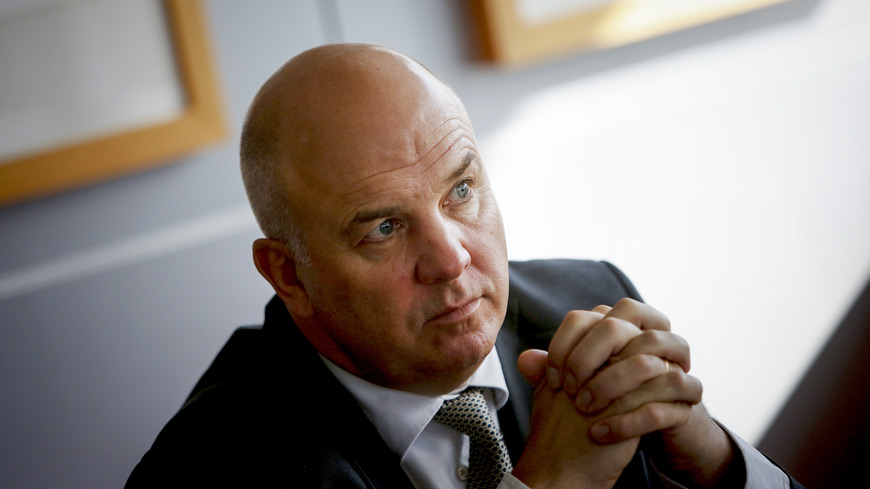“Sweden has played a leading role in providing assistance to persons in need of international protection; this should continue” said today Nils Muižnieks, the Council of Europe Commissioner for Human Rights, at the end of a five-day visit to Sweden. Welcoming Sweden’s efforts within the relocation and resettlement programmes, the Commissioner reiterates the urgent need to increase European solidarity, as well as safe and legal avenues for people to reach protection in Europe.
Noting the rapid decline in the number of asylum seekers, after a record high of 163,000 in 2015, the Commissioner expresses the hope that the temporary measures which introduced restrictions in 2016 in response to that increase will be lifted before the 2019 deadline. “The need to move beyond emergency mode is particularly urgent when it comes to the limitations introduced to the right to family reunification” says the Commissioner. He urges the authorities to lift these limitations, which also impede integration, and to ensure that refugees and beneficiaries of subsidiary protection enjoy the same rights in this regard. The Commissioner also calls on the authorities to ensure that rejected asylum seekers, who cannot be returned and are at risk of destitution, are treated in a manner that is both humane and human rights compliant so that their basic needs, including shelter, clothes and food, are met.
In the course of his visit, the Commissioner met in Stockholm with a number of unaccompanied minors of Afghan origin, who arrived in Sweden in late 2015; a year which saw the arrival of no less than 35,000 unaccompanied minors. While the Commissioner is aware that their reception has put a strain on the system and welcomes the efforts that Sweden has deployed in this domain, their situation raises a number of concerns. "First and foremost, the authorities should always treat the best interests of the child as a primary consideration in all decisions relating to asylum and migration." Any decisions on return should be based strictly on individual circumstances, such as the demonstrable existence of a family network or a secure environment upon return. The Commissioner also underlines that if doubts remain that the person may be underage, he or she should be granted the benefit of the doubt and be treated as a minor. “These cases should be prioritised to avoid long waiting periods, which contribute to psychological distress; as arrivals have slowed considerably, the authorities should strengthen the support provided to these young people.”
With regard to the human rights of persons with disabilities, the Commissioner is concerned by the decrease in the number of persons entitled to personal assistance under the Act concerning Support and Service for Persons with Certain Functional Impairments. “The authorities should closely monitor the impact of this decrease in terms of access to rights, in particular access to education and employment, and resort to congregated settings.” The Commissioner also remains concerned by the use of coercive and involuntary treatment in psychiatric institutions. The authorities should send a clear signal that the goal is to decrease coercive and involuntary treatment and ensure that sufficient safeguards are in place. Finally, the Commissioner welcomes the draft legislative provision aimed at lifting the exemption to the requirement of reasonable accommodation concerning enterprises having less than 10 employees.
The visit included a trip to Malmö where the Commissioner had the opportunity to discuss the significant role played by Swedish municipalities in the protection of human rights. He recognises and particularly welcomes the role of local authorities in countering terrorism and extremist violence through prevention programmes and social intervention.
The Commissioner’s report on his visit to Sweden is forthcoming.



